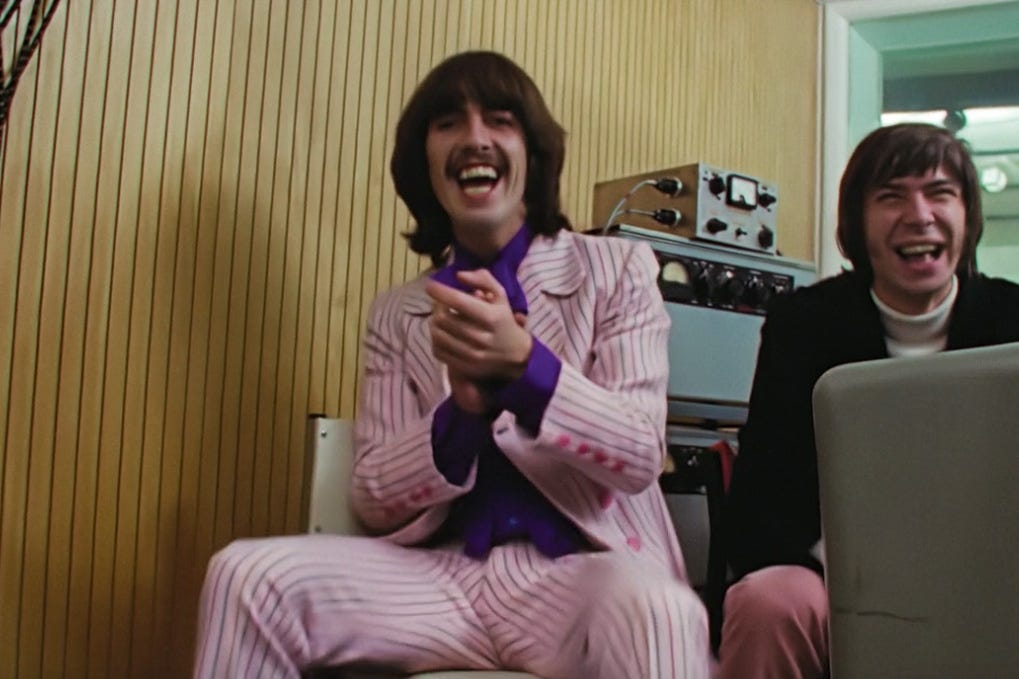Paul Is the Builders’ Beatle

Who was the best Beatle?
It’s a debate that has raged over espresso shots and bong hits since the group’s earliest days. Like most long-running debates, it owes its longevity to the fact that it can never be definitively settled. A decent argument can be made for any of the four, even the perpetually-underrated Ringo, who would have been the breakout star of any other group and who was almost certainly the most upstanding person of the four behavior-wise.
But if we can’t conclusively settle the question, we can still pick favorites. Mine has always been Paul. And if you’re a founder type, or even just an achievement-oriented, Type A artist, yours should be Paul too. All four of the Beatles were musical geniuses. But Paul had (has!) a unique ability to actually get shit done.
If you came to Peter Jackson’s Get Back documentary having somehow never heard of the Beatles, you would assume watching it that Paul was the official leader of the band. The other three would seem, if not quite his employees, still distinctly a notch below him in the hierarchy. It’s Paul who is constantly pushing them, directing them, cajoling them, Paul who is constantly stepping in to adjust the position of a monitor or a mic, to say a bit faster, a bit slower, let’s try it like this, no, like this. Take away any of the four and the remaining band would no longer be the Beatles. But take away Paul and there might not even be a band remaining at all.
You can tell that at times this makes the others annoyed with him, but they only rarely step up to challenge his authority; perhaps they realize that they need a taskmaster, no matter how irritating, to actually get anything done1. Besides, to my eyes Paul doesn’t look like he actually wants to be in charge all that badly. He has the harried look of that kid in school who doesn’t want to take the lead on the group project, but clearly no one else is stepping up, so whatever, fine, he’ll do it.
This dynamic is even reflected in the group’s sartorial choices. The other three are in new outfits every day, each one more outlandish than the last—John’s fur coat, Ringo’s Austin Powers look, George’s outlandish pink pinstripe suit. But around halfway through the series, Paul lands on a simple t-shirt and vest ensemble and sticks with it for weeks. The other three look like they’re dressed to be rock stars. Paul looks like he’s dressed to work.
This is the traditional knock against Paul, that he’s too practical. He’s the Hermione of the group, always nagging the rest of them to finish their work on time and openly striving in a way that’s just so… uncool. Diehard Lennonites will always see John as the true artist of the group, and Paul as more of a workhorse—an extremely talented workhorse, of course, but a workhorse nonetheless. (After all, we’re dealing in broad archetypes here.)
But these are all reasons to admire Paul, not to look down on him. When we’re younger, we think creativity is all about spark and inspiration (represented well by John’s unrestrained id); as we mature, we realize discipline and rigor are at least as important. Paul has put out almost an album every two years since 1970, and they’re all highly listenable, if sometimes a little unimaginative; most of John’s are so imaginative as to barely be listenable at all. And if Paul’s corralling of the group is uncool, well, sometimes being a leader means accepting that you can’t also be cool.
Paul is practical. He not only writes and performs great music, he reliably gets it out the door. That may not always be the most inspiring trait, but if real artists ship, then Paul was the realest artist of them all.
Ringo later confessed as much: “If Paul hadn't been in the band, we'd probably have made two albums.”


